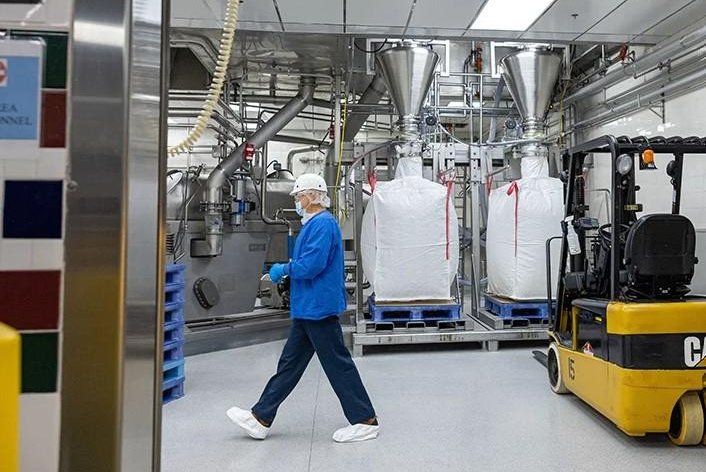Abbott restarts production of Similac baby formula at Michigan plant

An Abbott employee working inside a production area of the Michigan infant formula manufacturing facility wears shoe covers to help prevent outside particles from entering production areas. Photo courtesy of Abbott
Aug. 27 (UPI) -- Abbott is restarting production of Similac, the company's most popular baby formula, at its plant in Michigan which was shut down in February over concerns of bacterial contamination.
The shutdown of the plant in Sturgis, as well as supply chain issues that limited ingredients necessary to make baby formula, caused a national shortage that sent parents frantically searching for ways to feed their infants.
Abbott said in a statement Friday that it expects Similac to begin shipping to retail locations in about six weeks while EleCare, a hypoallergenic formula made by the company, will begin to ship "in the coming weeks" after it began production in July.
"We know that the nationwide infant formula shortage has been difficult for the families we serve, and while restarting Similac production in Michigan is an important milestone, we won't rest until this product is back on shelves," Abbott CEO Robert Ford said in the statement.
"Making infant formula is a responsibility we take very seriously, and parents can feel confident in the quality and safety of Similac and other Abbott formulas. We are committed to re-earning the trust parents and healthcare providers have placed in us for decades."
The company said that it will supply the United States with more than 8 million pounds of infant formula in August after it upped formula production at its facility in Arizona and started making more liquid Similac Ready-to-Feed liquid formula at its plant in Ohio, among other production changes.
The Food and Drug Administration inspected the Sturgis plant in February after receiving complaints that two babies four babies became sick with bacterial infections, two of whom died, after consuming formula from the Michigan facility.
The FDA and the Centers for Disease Control and Prevention said that Cronobacter sakazakii was the source for the infections and that the bacteria was found in two finished Similac products and environmental samples during an inspection.
"We have a zero-tolerance policy for Cronobacter or any pathogen in our plants. Cronobacter is naturally and commonly found in the environment and our quality systems are designed to find it and destroy it when it's present, as it sometimes is with all manufacturers," Abbott said in its statement.
"That is why we test for it regularly and take steps to eliminate it if and when we find it, is why we took the steps we did in Sturgis in February, and is what guides our approach today."
No comments:
Post a Comment